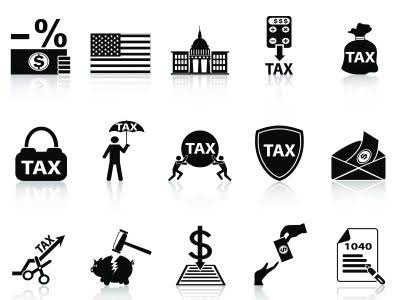
Specialized software has emerged as a vital tool in addressing these challenges, enabling companies to streamline their operations, improve financial reporting accuracy, and enhance decision-making processes. As the industry continues to evolve, embracing technology will be essential for staying competitive and compliant while responsibly managing finite resources. Oil and gas accounting software is not just a convenience; it’s a strategic imperative for the future of the industry. CFO is basically net income with non-cash charges like DD&A added back, so, despite a relatively lower charge for DD&A, CFO for an SE company will reflect the net income impact from expenses relating to unsuccessful exploration efforts. The accounting method that a company chooses affects how its net income and cash flow numbers are reported.
FAQs about Oil and Gas Accountants:

Although oil and gas accounting is quite a complicated field, it can still be improved through mediums like oil and gas accounting software. Knowledge, expertise and experience https://www.instagram.com/bookstime_inc are among additional factors that play equal role, so by expanding your knowledge of accounting in this particular industry, you can reap serious advantages. After all, any type of accounting relies on a good deal of theory, so the theory of accounting in the field of oil and gas is definitely worth learning, or at least familiarize with it. In cases of drilling ventures deemed unsuccessful, these expenditures are promptly deducted as expenses on the income statement. Other costs, such as those pertaining to geological and geophysical exploration, are primarily recorded as expenses as they are incurred. The CAQ has developed a resource page to help auditors, management, and audit committees understand the impact of the COVID-19 on financial reporting and oversight.
- The past several years have seen significant changes in the accounting and disclosure rules for the industry.
- Proper accounting practices build trust among investors, regulators, and the public, fostering confidence in the industry.
- In other words, you know it’s there, and it’s cost-effective to extract it at current market prices.
- Another important aspect is the treatment of variable consideration, which is common in oil and gas contracts.
- You don’t assume anything for Exploration since you’re pretending that the company finds nothing and dwindles to $0 in the future, and you leave out items like corporate overhead and SG&A because we’re valuing the company on an asset-level.
- EAG Inc. operates under the principle that best practices can vary from company to company.
- All oil and gas companies perform some of the same core activities, such as capital expenditure, G&A, interest payments, revenue recognition, and operating expenses.
Asset Retirement Obligations

And based on that logic, you pretty much capitalize everything, even if you’re suffering through a string of dry holes. So as you might expect, a business using the full cost method will have more assets on its books than another firm that’s using the successful efforts method. In April 2020, the CAQ issued a publication to provide a high-level overview of SEC requirements and guidance around non-GAAP reporting and the potential impact of COVID-19 on that reporting.
- You add all those up to arrive at Enterprise Value, then back into Equity Value the normal way, and calculate the company’s Implied Share Price by dividing by the diluted shares outstanding.
- So, someone figured out years ago that they’d lump all of these assets together and use a standard depletion calculation to charge everything to expense.
- In a way, these arrangements are somewhat similar to how sales taxes are handled in other industries.
- Regardless of industry, all publicly traded companies in the United States follow accounting principles set forth by U.S.
- The present value of these future costs is recorded as a liability on the balance sheet, with a corresponding increase in the carrying amount of the related asset.
- This split can vary significantly depending on the terms negotiated and the level of production achieved.
Balance Sheet
- This section of the article guides readers through the key provisions of the new standard.
- Harrison is very involved with the University of Tulsa, where he earned a degree in MIS and Accounting.
- And therefore, we get the term DD&A, since it combines elements of depreciation, depletion, and amortization.
- Information is considered material if its omission or misstatement could influence the economic decisions of users.
- With technological progress and frequent uses of AI in oil and gas, software becomes more complex – and even more vital.
- This doesn’t really affect the income statement, but you do need to add back deferred taxes on the cash flow statement.
Reserves are classified into proved, probable, and possible categories, each with varying degrees of certainty. Accurate reserve estimation is crucial for financial reporting, as it affects asset valuation and depletion calculations. Companies often employ specialized software like Petrel or Eclipse to model and estimate reserves, ensuring precision and compliance with industry standards. These principles, among others, provide the foundation for financial reporting under U.S. GAAP is dynamic, and the FASB continually updates and issues new standards to address emerging issues and improve the quality of financial reporting.
Latest resources

It’s common for oil and gas companies to enter into joint operating agreements with other companies to use leased equipment like drill accounting in oil and gas industry rigs. Under these joint operating agreements, organizations will need to determine whether to record these shared embedded leases on a gross or net basis. Material assets used in oil and gas operations, such as oil rigs, are often employed through a bundled service contract. This contract will often include the labor and other materials needed to operate the asset. If any parts of these agreements meet the definition of a lease, the new standards require companies to determine the standalone value of each element of the contract, both lease and non-lease.
Specialized Training and Education

For instance, a significant drop in oil prices may lead to a reassessment of the economic viability of certain fields, resulting in impairment charges. These charges can have a substantial impact on a company’s financial performance, affecting both its income statement and balance sheet. Oil and gas accountants are responsible for preparing accurate financial statements, including income statements, balance sheets, and cash flow statements. These reports provide insights into the financial health of oil and gas companies and aid in decision-making processes. Understanding the unique terminology and principles in oil and gas accounting is fundamental for anyone involved in the industry. One of the primary concepts is the distinction between upstream, midstream, and downstream activities.
In general, reserves are considered to be the amount of commercially recoverable oil and gas. Within that general concept are two subdivisions, which are proved reserves and unproved reserves. The main focus of attention from an accounting perspective is proved reserves, which are those oil and gas reserves that can be reasonably estimated to be commercially recoverable from known reservoirs. In other words, you know it’s there, and it’s cost-effective to extract it at current market prices. Reserve estimation and valuation are fundamental to the oil and gas industry, serving as the bedrock for investment decisions, financial reporting, and strategic planning. The process begins with geological and engineering assessments to determine the quantity of recoverable hydrocarbons in a reservoir.
Oil and gas accountants must navigate these challenges while ensuring accuracy and compliance. Asset Retirement Obligations (AROs) represent a significant aspect of financial planning and reporting in the oil and gas industry. These obligations arise from the legal and regulatory requirements to dismantle and remove infrastructure, such as wells, pipelines, and production facilities, once they are no longer in use. The process involves not only the physical removal of assets but also the restoration of the site to its original condition, which can be both time-consuming and costly. Revenue recognition in oil https://www.bookstime.com/ and gas accounting can be complex due to factors such as production-sharing agreements, joint ventures, and royalty payments. All of these issues mean that oil and gas accountants have to deal with the full range of accounting issues, practically on a daily basis.










